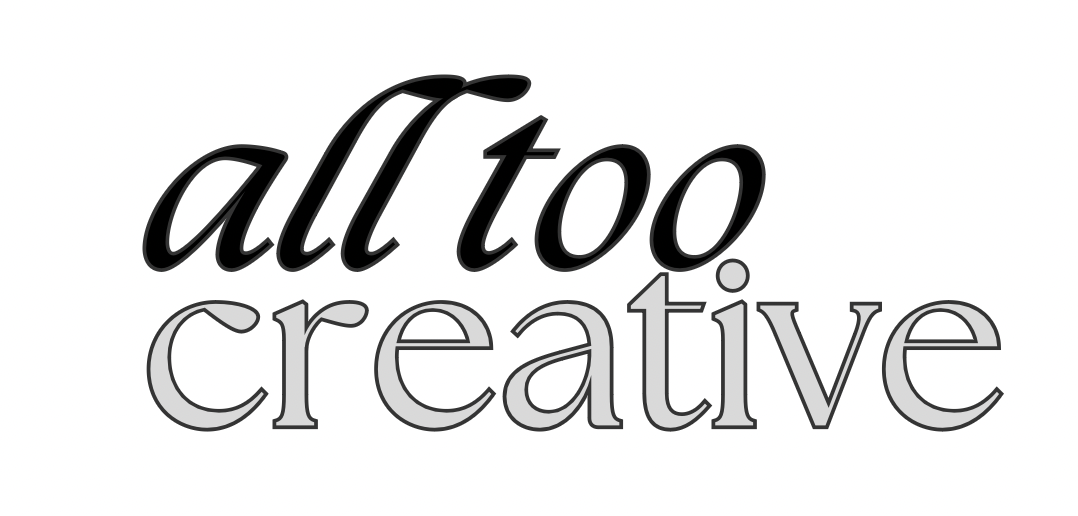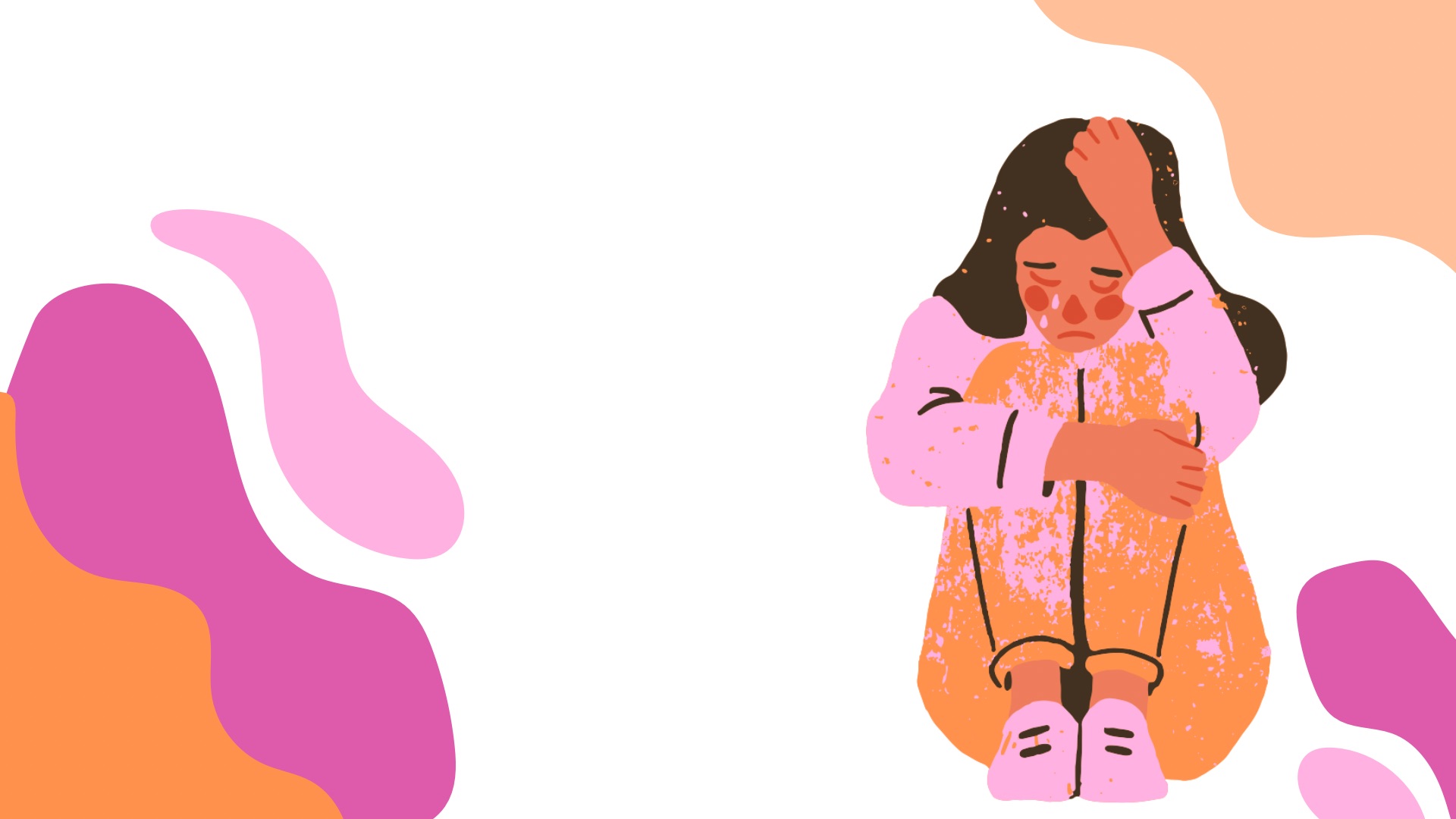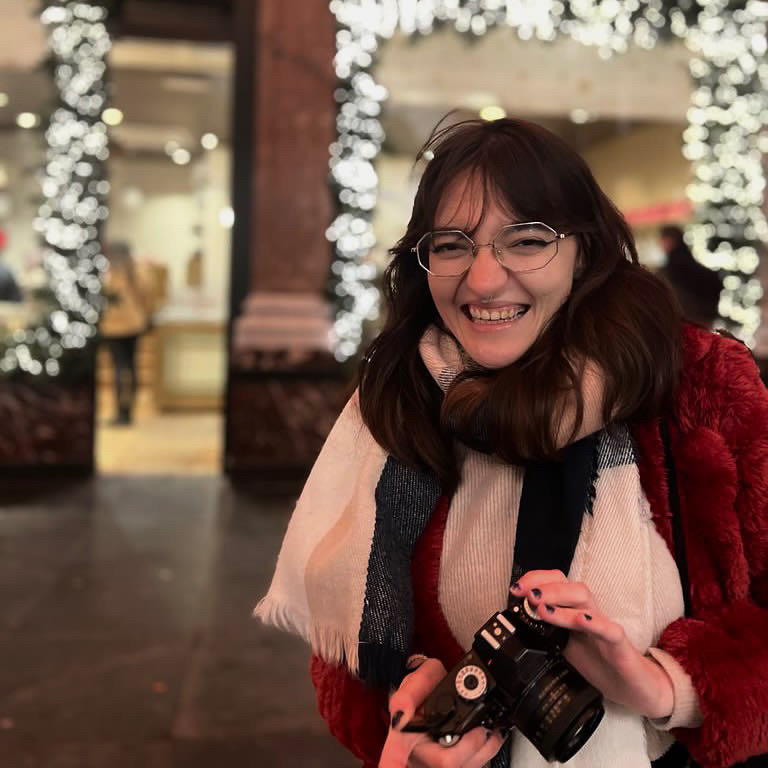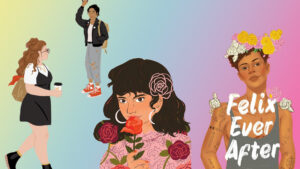I received my diagnosis of obsessive-compulsive disorder (OCD) not long ago. At the news, I wondered what other OCD cycles I went through in the past that I brushed away. After a lot of research, I realized figuring out your sexuality can be impossible when it becomes an obsession. Even more so when the sexuality in question is not accepted in society.
*This article was inspired by “LGBTOCD: Living With Obsessive-Compulsive Disorder while Queer” by Jacob Sutherland.
What is OCD?
Obsessive-compulsive disorder is a mental illness where the person suffers from obsessive & intrusive thoughts, followed by compulsions or rituals to alleviate the anxiety. If those compulsions are not performed, the mind sees those distressing thoughts and believes they will become reality. However, doing the compulsions only gives you peace of mind for a little bit. The more you do them; the more complex they become, to the point where it can be debilitating. These episodes are OCD cycles, because there is no getting out of it with the rituals. You can only get out of the cycle by breaking it.
There are many different types of OCD. My specific subtype is contamination OCD, but it doesn’t limit itself to that. When I got diagnosed, I thought back about my incessant questioning about my sexuality, going back and forth for years until it culminated into months and months of distress. I asked myself, “could that be a symptom of my disorder”?
Lesbianism, An Unthinkable Scenario
We are socialized from our youngest age to live a heteronormative life – a marriage of a wife and a husband, with children if possible. In every scenario, men are the focus. I’ve grown up being taught how to be a good wife, which I rebelled against since childhood. Being a man’s wife, as well as everything that involved (cooking, cleaning, etc.) did not interest me, and it was quite offensive to see my life and identity reduced to serving someone else.
I figured out early I was into women. I identified as bisexual at the age of fourteen, but the feelings I had towards men differed greatly from the ones I had towards women. With men, there was this pressure to be the perfect woman, and I made it my life purpose to be the opposite of that. I knew I had a preference for women, but with the pressure of high school, my parents, my religion, and everything else I was taught – I didn’t know how being with a woman would turn out for me. It explains why when I started dating, I headed towards men.
I hadn’t dated many men, but when I was with them, there was this dread in my chest. I thought I was afraid of intimacy, that maybe touch wasn’t my love language, that I was asexual – anything except being a lesbian. The thought would cross my mind and I would turn it away, telling myself I can’t be like that. For me, having to accept I wasn’t attracted to men was the worst case scenario. There would be no hope for my family to accept me, I would live a marginalized life and I would be met with hatred and disgust from everyone. That is what being a lesbian seemed like in my head.
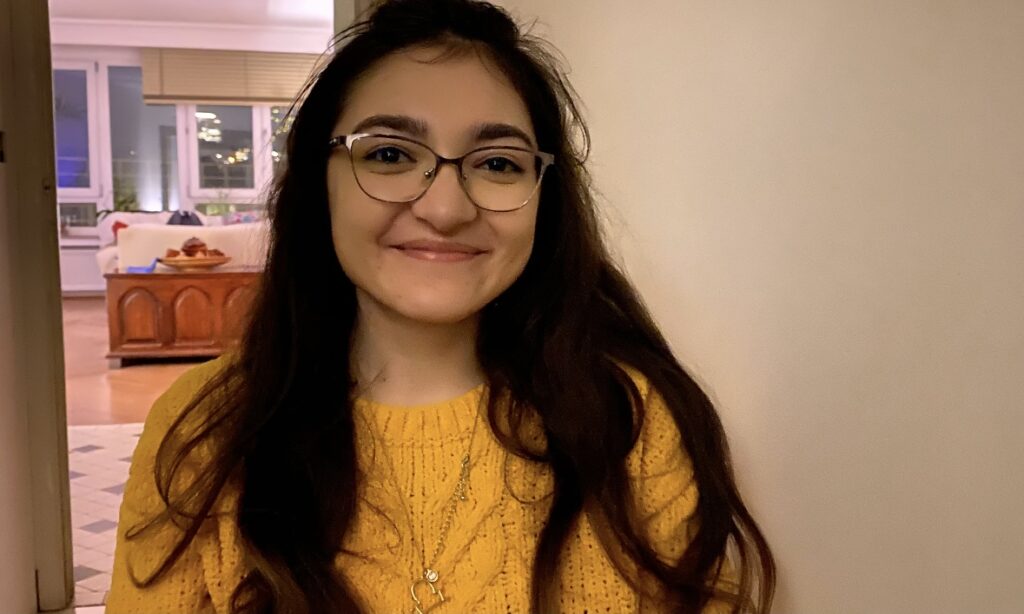
Introspection in Unprecedented Times
When the pandemic happened, I ended up back at my parents place with new experiences. I had kissed men, I had been in relationships with men, I had thought about men in a romantic way. All of it was making me uncomfortable and with being stuck in my room, in an OCD cycle of being scared I’d catch COVID, there was this other layer that made me feel I was going insane. It was one of the worst time periods of my life. My head felt like a prison I couldn’t escape and I couldn’t do anything because I was too scared to leave my house.
I began obsessing over my sexuality and tried to hide it behind jokes with my friend. “How funny would it be if I was a lesbian this whole time?”. It was not amusing at all to me, but I needed to let someone know what I was going through. Seeking reassurance is a common compulsion with OCD, and I had been using it to the maximum. I would ask my friends anything from “my chest feels constricted, do you think I caught it?” (I was having a panic attack) to “I don’t feel anything when kissing men, could it be possible I’m not into them?”. My friends would reassure me the best they could, but I was living a nightmare knowing what would happen if my obsession was right.
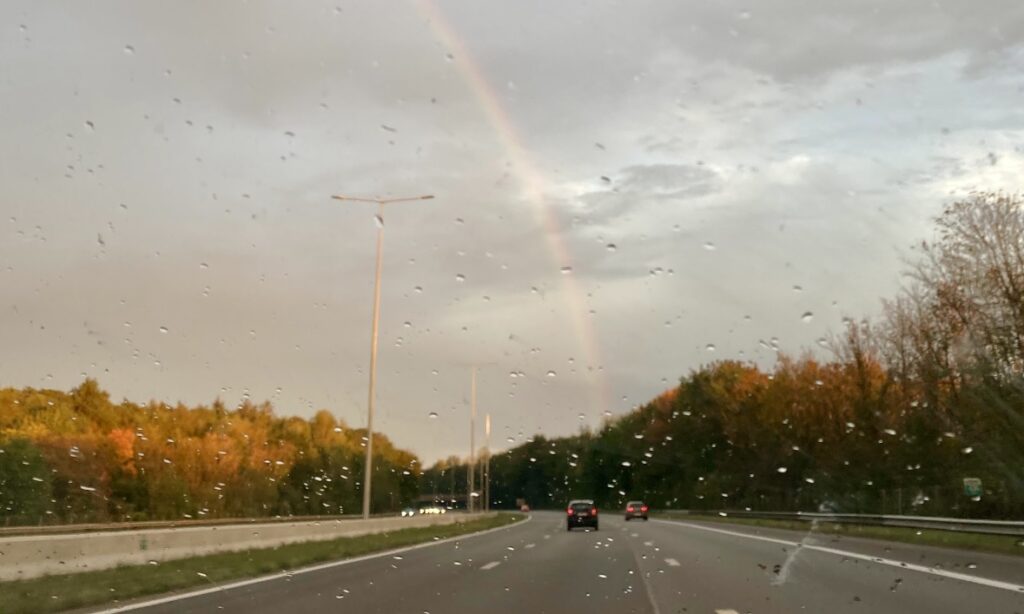
Dating Men… Again and Again
That summer, I got my heart broken by a guy I thought I was in love with. To me, that confirmed I wasn’t a lesbian. Yet like a good obsessive thought, it kept coming back. When I got back to university, I immediately went for this other guy at my school. I filled my thoughts with him while the thoughts of me being a lesbian were getting louder. This is also part of OCD – trying to replace or distract yourself with other thoughts. Meanwhile, the one you’re avoiding is still there. I was performing compulsions like putting myself in situations I wasn’t comfortable in, going on dates with men, kissing men, trying to feel something for them.
During one date with the guy from my university, I showed him this project I had done where I was talking about my sexuality. He asked if I was a lesbian, and I immediately reassured him I was bisexual. I had this inherent need to not be perceived as a lesbian. I still had the hope that if I managed to get a boyfriend, the obsessive thinking would go away.
Losing Sleep, Losing My Mind
When I didn’t have a man to distract my obsessive thoughts with, I couldn’t function. I was crying almost every night and I was feeling more and more inadequate with my parents. I thought everyone could see through me and I was terrified. At the same time, I was catching feelings for my female best friend. I didn’t know how to tell her given she had a boyfriend, and she was going through issues of her own. Having these secret feelings further reinforced my belief that I was awful for feeling them.
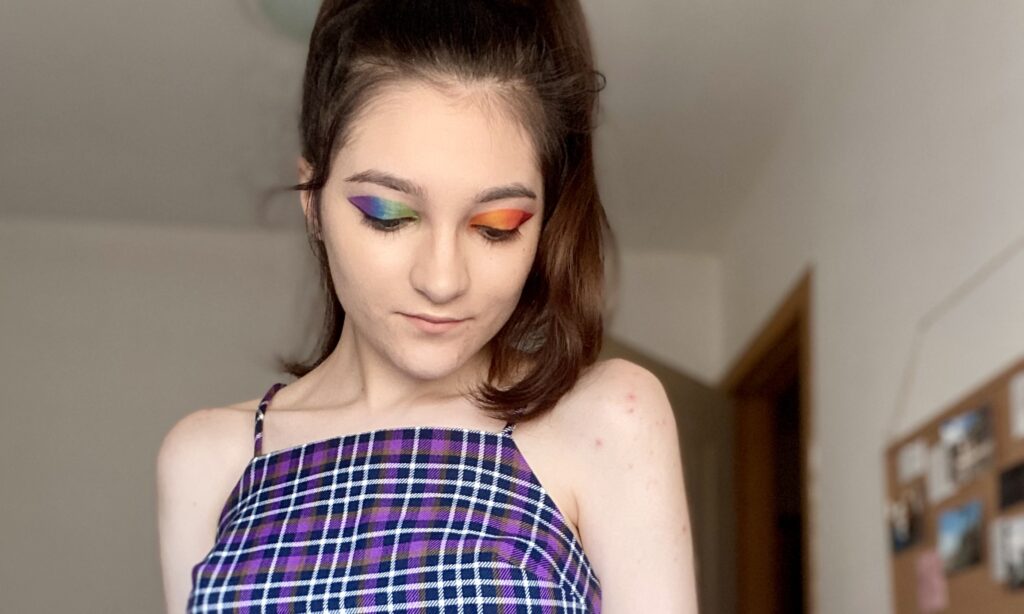
At that point, I was identifying as queer, dropping the bisexual label altogether. I told my therapist about my thoughts and how I was driving myself insane. She told me it was fine to not have a label, but I needed one. I needed to know. Rumination is another part of OCD, where you cannot let go of an obsessive thought until you figure it out. There was no figuring out in my case, because I couldn’t let my feared outcome become reality.
I spent hours researching experiences from other people who were lesbian, people who were questioning, anyone who might’ve made me feel less alone in my quest and in my mind. Isolation is what OCD does best, and in cases like these where being a lesbian is a particular experience in itself that only lesbians can understand, I was spiraling.
I Am a Lesbian… But Am I Really?
Accepting I was a lesbian in the summer of 2021, more than one year after I started questioning, was heartbreaking to me. I couldn’t even tell my best friends, who were also part of the queer community, because what if I changed my mind? What if, what if, what if? It was all rooted in this fear that no matter who I was, I was an imposter.
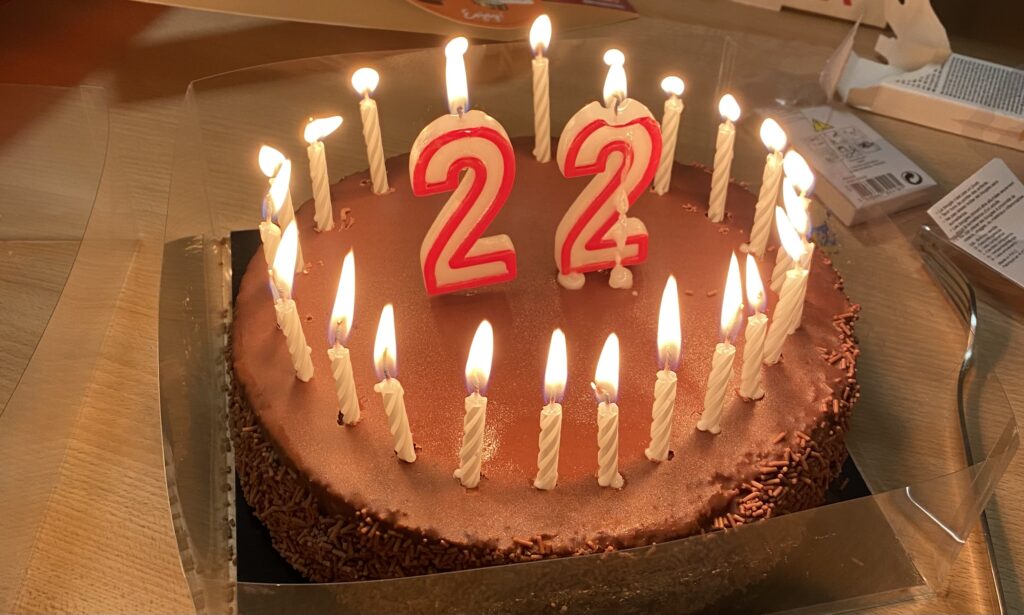
One of the reasons it took me so long to come to terms with my sexuality was that I needed to be absolutely certain. Even if I knew I wasn’t attracted to men, I still tried to replace the feelings for my female friend with feelings for a man. I got drunk and told myself if I managed to kiss him, touch him, be with him, then I was wrong. It would’ve been a relief. However, as we had history, he rejected me and I had to face the truth again: I didn’t really like him, I was just avoiding my feelings.
But Am I Really a Lesbian, Part 2609
Sometimes I’d go on dating apps just to look at men and try to feel anything romantic towards them. I would even start a conversation, but the moment someone tried to see me, I would panic so badly I would start crying. It still wasn’t enough proof for me. OCD does that best, even if the compulsions are successful, they won’t last. They only offer temporary relief, after which I was back to trying to accept my identity.
Meeting Her
When I met my ex, I didn’t yet believe in love at first sight. I was on vacation, trying to escape everything back home, and I was not looking for anything romantic. I was on a dating app trying to find friends in a new country, and we talked about meeting up for drinks.
The moment I saw her, I knew it was different from all the people I’ve met before. She was gorgeous, but not only that, she was a magnet. I hugged her and as we took our seats, I could recognize how comfortable I was around her. My level of Spanish was intermediate at best, but she was patient with me and let me switch to English when I couldn’t find a paraphrase. We discussed tattoos, music, art, and our moon obsession over drinks. All the time, I couldn’t stop thinking about how peaceful it felt to be discussing with someone, and not have that buzz in my chest alarming me.
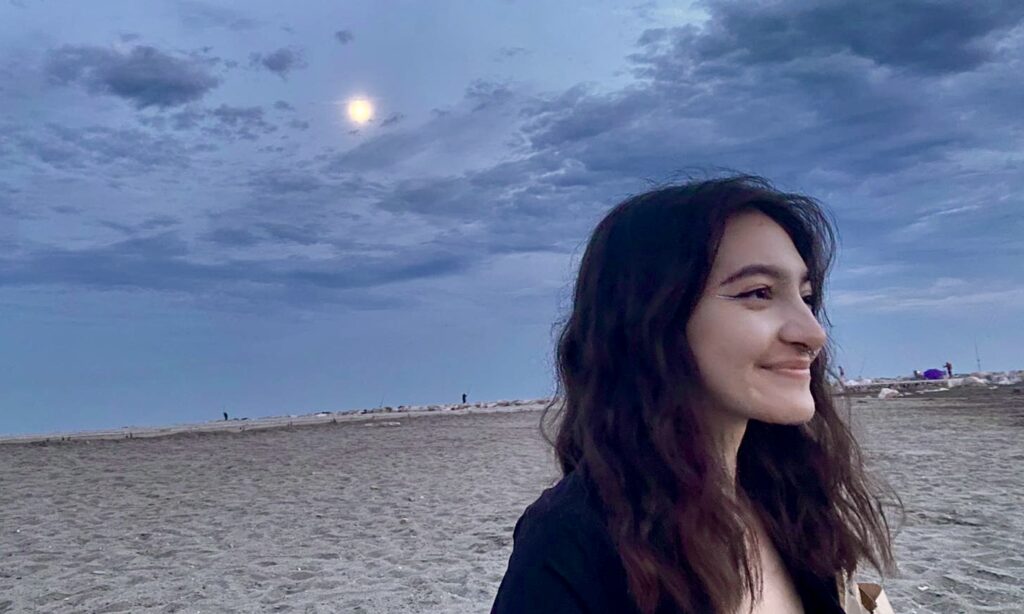
Although we hadn’t defined the meet up as a date, it turned into one. We were getting closer and closer and for the first time in my life, it felt right. It wasn’t planned, it wasn’t worked through, it was just a regular day – yet everything changed for me. I was hesitant to call myself a lesbian, but with her, it held more ground. Proof that what I was identifying as wasn’t a lie, or a phase, or whatever else my mind convinced me it was.
Falling for her was easy. Of course, there were lots of issues with the distance and the fact that neither of us was in the head space for a relationship right there and then, but she changed the way I viewed my thoughts and emotions. She was the catalyst to accepting my sexuality.
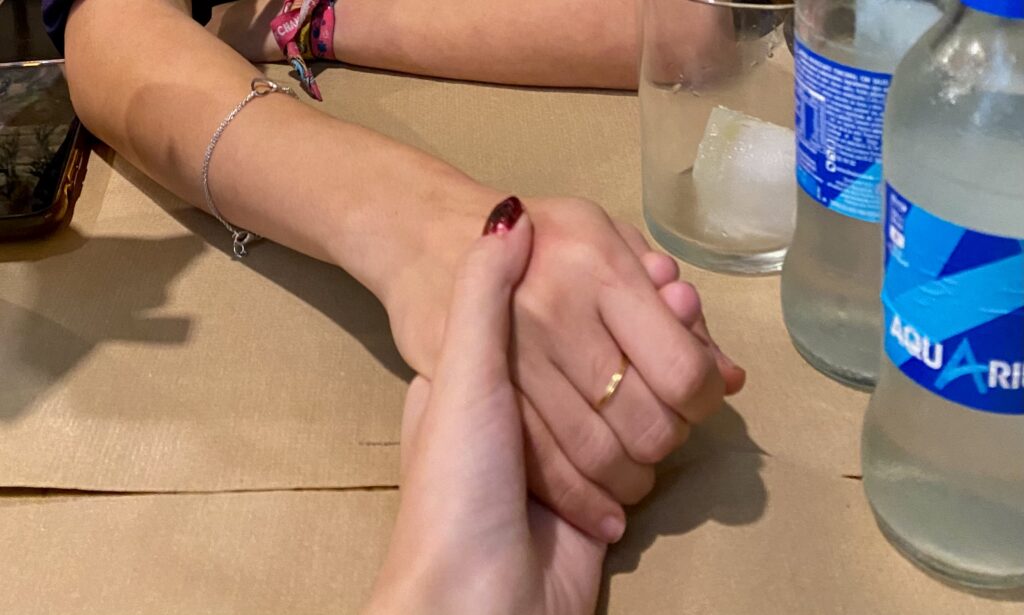
Coming Out
At the same time, I was writing a documentary about my experience of figuring out I was a lesbian. The pressure of telling my peers was getting to me. Ideally, we wouldn’t have to feel compelled to tell anyone our sexuality, but given how this world treats anything outside heteronormativity, there was an expectation I couldn’t escape. I had told my friends about my internal struggle, but I still found it difficult to utter the words “I’m a lesbian”. While I knew better now that was my identity, I still feared what would happen if I told everyone. Catastrophizing is another aspect of OCD. To the obsessive-compulsive mind, the worst case scenario is the default.
It seems ironic how much I avoided saying I’m a lesbian in hindsight, given my documentary would talk in detail about my experience. When I told my friends, they were very supportive. With my family, it was much more difficult. I didn’t want to tell them, but I felt I owed it to myself after the turmoil I went through. Thankfully, after those experiences, I eased up on the doubt. I still compulsively swiped through men on dating apps sometimes, in an attempt to further prove I wasn’t into men, but I knew who I was – which was more than I thought I’d get.
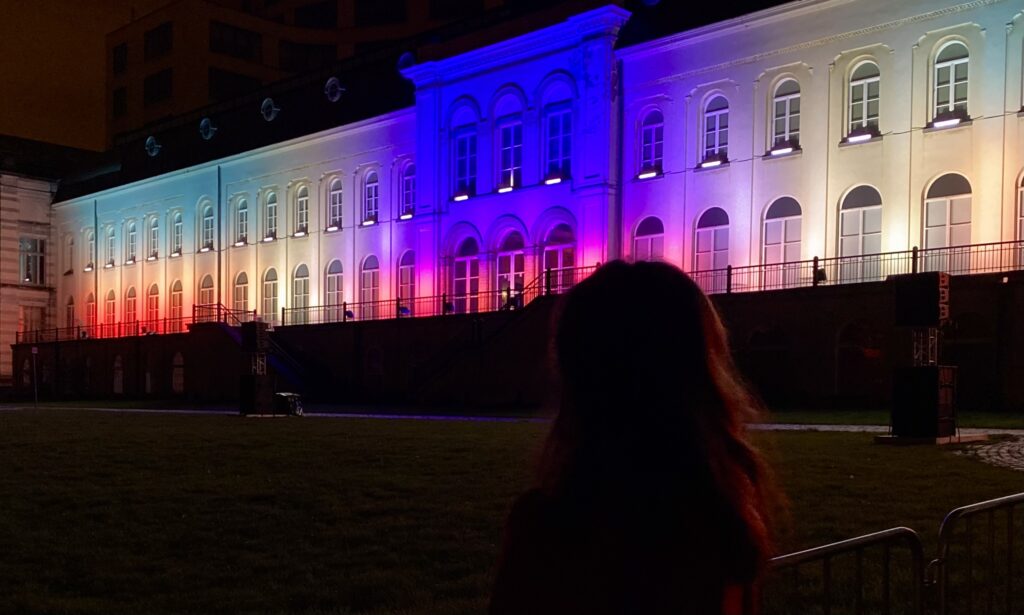
Sealing My Identity with Bricks
People often talk about labels as if they were boxes, and that’s how I viewed them when I first proclaimed myself as a lesbian. Loud and proud, yes, but there was so much more to prove. I searched for control over how people perceive me. Since I felt like such an imposter for so long, it was important that others recognise me as a lesbian. I made small talk at parties where I mentioned my identity. I was impenetrable under the scrutiny, not giving anyone the chance to doubt me as I had. Still, there were people who did.
Although the reminder of my past with men would haunt me, I refused to hide that part of my history. Yes, I dated men. Yes, it took me years to know I wasn’t into them. And yes, I’m still a lesbian. Through all of this outside questioning, I found inspiration for my art. If I made being a lesbian my brand, then everyone would associate me with the label. Besides the documentary detailing my journey, I wrote poems about it. I expressed myself often on social media, I spoke up about issues surrounding lesbianism and misogyny. I did everything I could so people wouldn’t question me, because if they did, I would spiral.
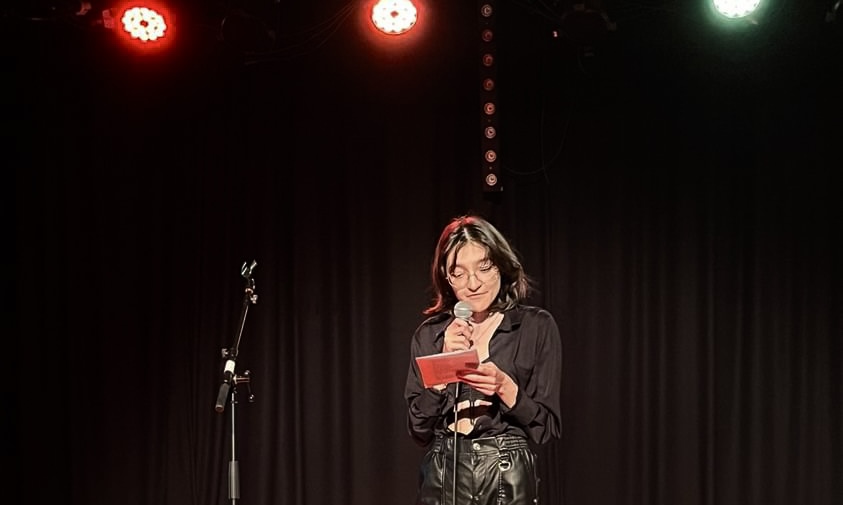
While I was at it, I was building a wall as a defense mechanism. If I told everyone I was a lesbian, I couldn’t take it back. It would make it more difficult for them to get past this wall and convince me I wasn’t.
I’m a Lesbian!
As I approach three years of being out as a lesbian, I realize my sexuality, although an important part of myself, is not set in stone. Let me be clear – it is not because I think I won’t be a lesbian in the future. What I’m talking about has nothing to do with the possible fluidity of sexuality (although that is very much valid).
No matter how much I’d like to tell people I’m a lesbian for the rest of my life, my mind will take me back and forth when it comes to my attraction to men. I don’t doubt that I am attracted to women and non-binary people, but my disorder makes me question everything. Being aware of the symptoms isn’t helping with logic, because I still wonder what percentage is made-up lies, and which percentage is reality.
Does The Uncertainty of Being Lesbian Go Away?
This summer I found myself struggling with impostor syndrome once again as I debated feelings for a male friend. These are not thoughts that appear to me often, rather they are episodes that shake the foundation of a certainty I spent years building. OCD is highly distressing no matter the subject it chooses to latch onto, but with me, this one debilitates me. I can’t sleep as I review my memories with men from the past. Not eating because thinking of being in a long-term relationship with a man makes me nauseous. Crying all the time and I think I’m the worst person on earth for even thinking these thoughts. Being a lesbian is who I am. If I’m not that person, then who am I?
To answer the question, the uncertainty doesn’t go away. Although I am more confident in my identity as a lesbian now, these moments will keep coming back. Paired with compulsive heterosexuality, OCD refuses to back off. That is why lesbianism is a difficult identity to claim when you suffer from obsessive-compulsive disorder. The world will try to convince you there is a perfect man out there for you, your mind will discredit you time and time again, and you have to make the cognitive decision each time that you are valid.
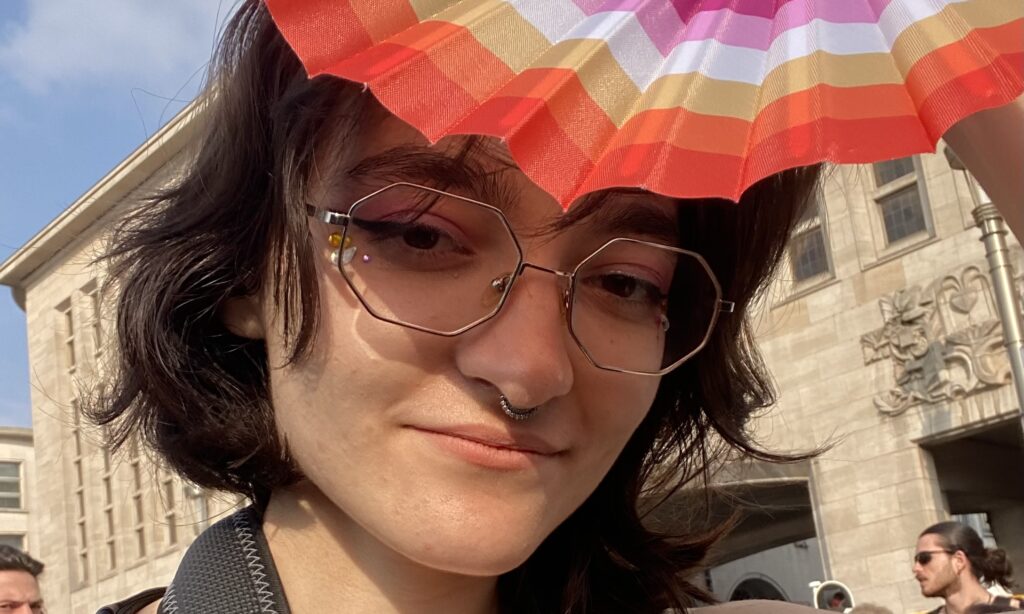
In Conclusion
I wrote this article to shed light on two subjects that have been part of my writing for a long time. I am passionate about mental health awareness and LGBTQIA+ issues. Both of these are highly controversial subjects to touch on. I want this to serve as a lighthouse. Figuring out you’re a lesbian is difficult enough. When you have a mental illness that makes you question everything, it’s worse. I want you to know if you’re struggling, you are not the only one. You are not a less valid lesbian because of the distressing thoughts your disorder might cause you. There is no other sexuality that is subjected to as much scrutiny as lesbianism is. We owe it to ourselves to be gentle when approaching our identity through the lens of what is considered the “doubt” disorder.
If you want to read more about our queer stories, head over to this article!
